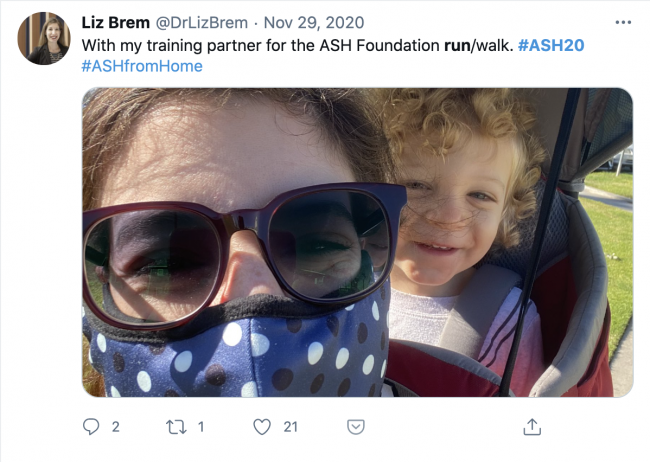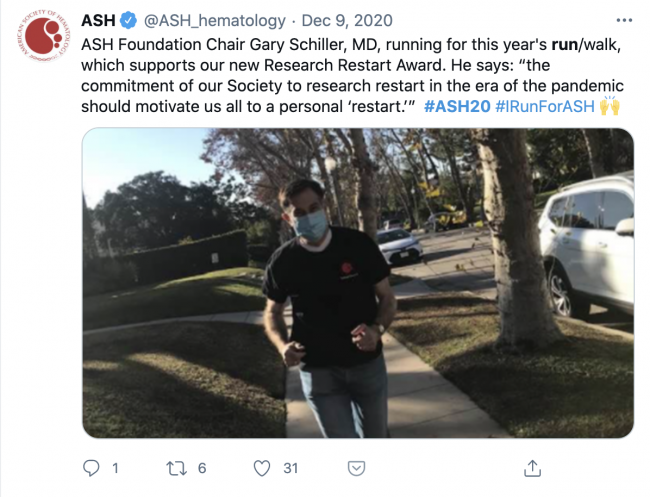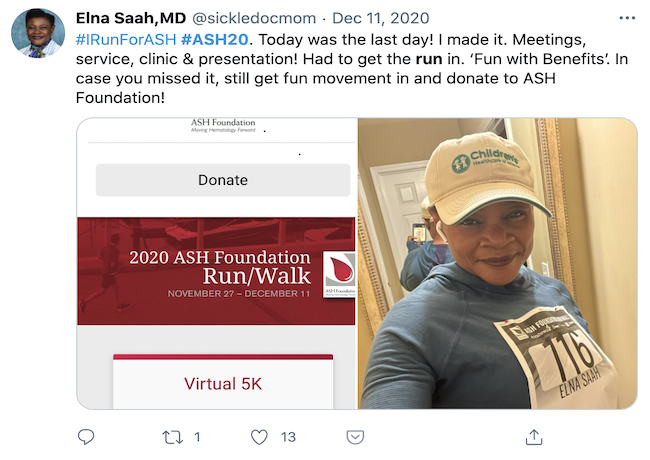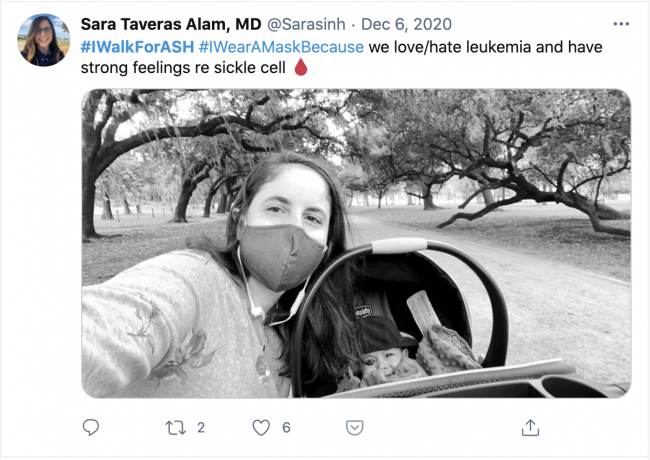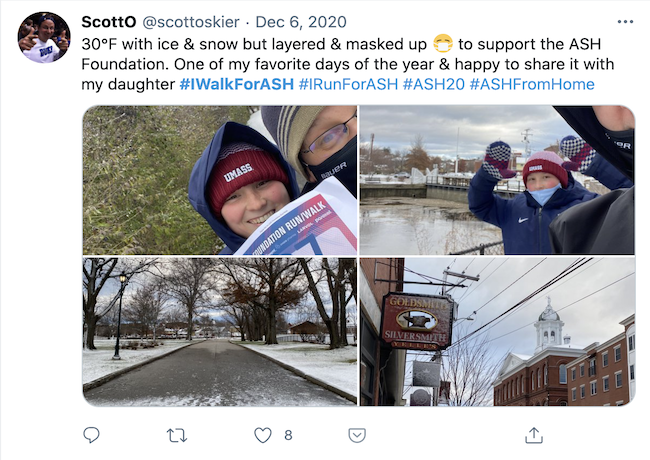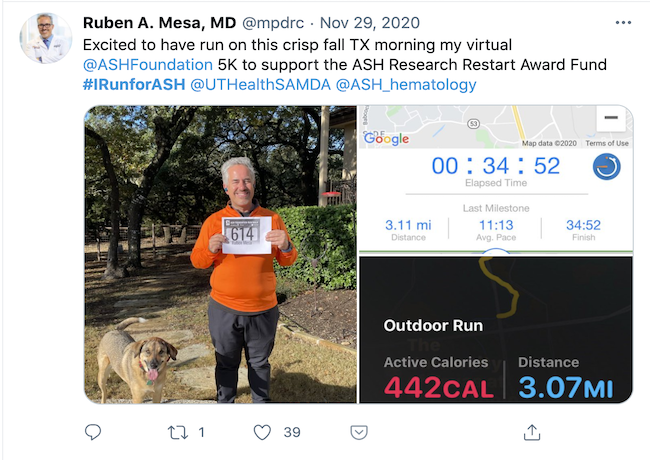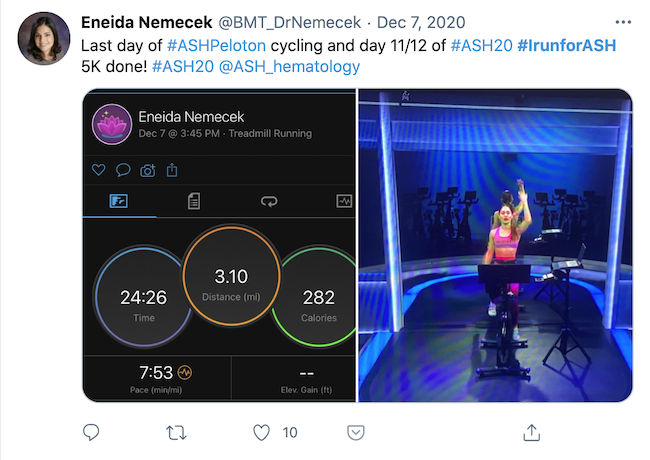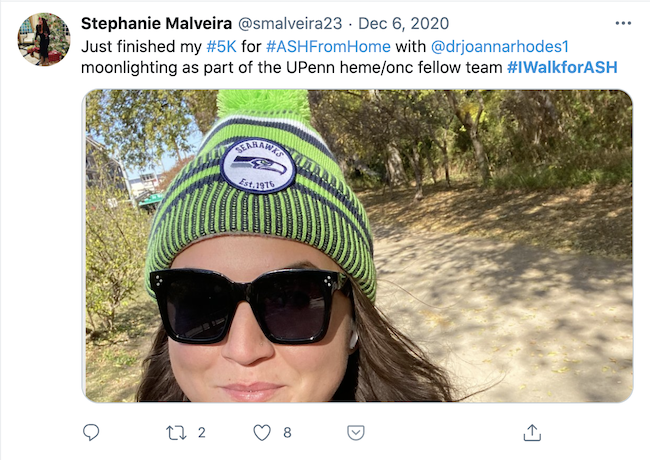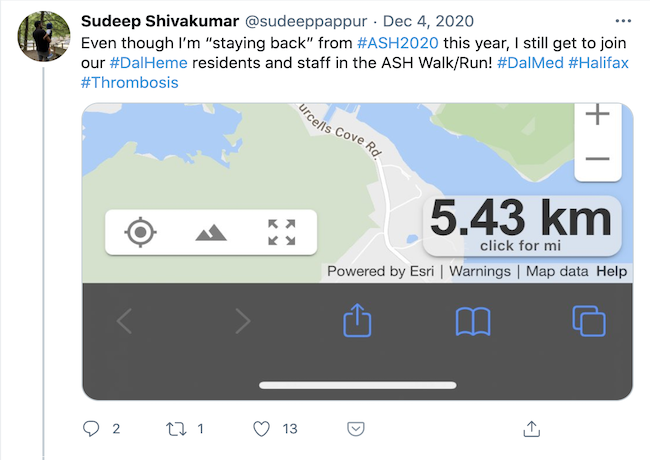2020 Annual Report
American Society of Hematology


What a year. 2020 brought unprecedented challenges upon the world and in particular the health care community, including our esteemed ASH members, volunteers, and employees.
I’ve been offered condolences for the strange fortune of being ASH President in such a tumultuous time. Not only the public health crisis of COVID-19, but the ongoing civil unrest and call for racial justice during the most chaotic election year in modern history together made 2020 a challenging, emotional, and often exhausting year to navigate.
But I will confess: I am in fact grateful for the opportunity to be ASH President this past year. While I knew serving as ASH President would provide personal and professional growth, I could never have anticipated just how much I would learn and grow. I had the privilege of having a front row seat to ASH’s impressive response to the many challenges of 2020– from the Society’s rapid development of resources for hematologists battling COVID-19, to its impassioned commitment to fostering diversity, equity, and inclusion in the health care community.
I must also commend ASH’s rapid action and embrace of remote technologies that would not only enable the Society to remain productive, but also support an incredibly successful all virtual ASH annual meeting. Getting to experience this innovative meeting platform and virtually connect with hematologists and medical leaders from around the world was an extraordinary delight for me as ASH President. Many have said the 2020 ASH Annual Meeting will serve as a standard for virtual meetings in medical education, and I wholeheartedly agree.
The ASH COVID-19 response and annual meeting may have been front-and-center, but behind the scenes, ASH continued its important work of supporting hematologists – particularly those trainees and young investigators most vulnerable in this time – maintaining global programs and advocacy efforts, developing clinical practice guidelines including guidelines related to COVID-19, developing innovative webinars and virtual training programs, sustaining funding levels for all ASH awards, and so many other important initiatives, as detailed in this annual report.
ASH also continued to advance efforts to improve the way sickle cell disease (SCD) is treated through supporting advances in research, improving provider training and education, advocating for policies to expand access to care and improve data collection, conducting global health outreach, and more. Conquering SCD remains a clear priority for ASH and the ASH Research Collaborative, and the release of the 2020 National Academies of Science, Engineering, and Medicine NASEM strategic plan and blueprint for addressing SCD in the United States was an important milestone toward improvement.

As we embark on 2021, we are optimistic that this year will bring about deepened understanding and continued progress in combating the various threats to our Society, be it the novel coronavirus or racial bias in the health care community. We look forward to not just getting back closer to normal but beginning to create a new normal that is more inclusive and safe for everyone.
Thank you for allowing me to serve as the ASH 2020 President. It has been an absolute privilege. I look forward to seeing what new successes are in store for 2021 under the able leadership of my successor, Dr. Marty Tallman.
– Stephanie J. Lee, M.D., 2020 President of the American Society of Hematology (ASH)
When the COVID-19 crisis hit in early 2020, ASH launched into action to develop resources and serve as a reliable source of information for its members and the broader health care community. In addition to developing practical Frequently Asked Clinical Questions and guidelines to assist hematologists navigating COVID-19, ASH also provided critical funding to drive research and support hematologists whose work was affected by the pandemic, all while planning and executing a successful all-virtual annual meeting. ASH would like to thank the hundreds of members and volunteers for their tireless efforts in developing and keeping these resources up-to-date.
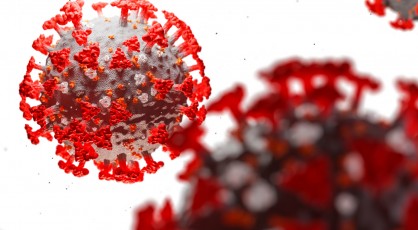
The development of evidence-based guidelines for health care professionals requires considerable time and a rigorous review process. Recognizing the immediate need for trusted resources related to COVID-19, ASH volunteers worked tirelessly to develop rapid COVID-19 Resources to help hematologists and other health care professionals on the front lines of the pandemic navigate difficult treatment decisions. These real-time resources, available on the ASH website, include a growing series of Frequently Asked Questions related to COVID-19 treatments and prevention, malignant and non-malignant topics, and clinical laboratory topics, as well as clinical FAQ resources from other societies. ASH also released a series of ASH webinars related to COVID-19. You can find them, along with other educational webinars, on the ASH Webinars webpage.

Abnormal blood clotting has been reported as a complication associated with increased risk of death in patients with COVID-19, particularly hospitalized patients. In response, ASH released new clinical practice guidelines on preventing serious blood clotting complications affecting COVID-19 patients. Although the guidelines were developed rapidly (panel formed in June and Guidelines were released for comment in October), ASH followed its traditional and rigorous guideline development process – including selecting questions, completing systematic reviews, reviewing the evidence, and drafting recommendations. These guidelines will be updated as new evidence continues to emerge.

The COVID-19 Research Agenda for Hematology is a living document representing fundamental questions that experts in hematology and blood research deem critical to researchers, physicians, and patients. As of December 2020, areas of focus include the relationship between COVID-19 and coagulation and thrombosis, epidemiology and health disparities, hematologic malignancies, hematopoiesis and hematopoietic dysfunction, inflammatory signaling and cytokine release, and transfusion medicine as well as convalescent plasma.
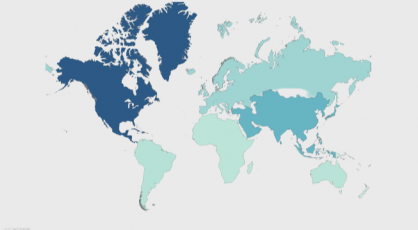
The ASH Research Collaborative (ASH RC), a non-profit established by ASH in 2018, launched the ASH RC COVID-19 Registry for Hematology, a global public reference tool that captures data on individuals who test positive for COVID-19, have a past or present hematologic condition, and/or have experienced a post-COVID-19 hematologic complication. Health care professionals caring for individuals with a hematologic condition and COVID-19 are encouraged to submit data to the registry. As data are analyzed, real-time observational summaries are available via a public dashboard.

ASH launched the ASH Research Restart Award to reduce the impact that the global COVID-19 pandemic has had on the progression of research and career paths for investigators in hematology. The program provides resources to support resumption of paused research and career stability in an uncertain environment. As of December 2020, 19 recipients received ASH Research Restart Awards.
The year 2020 brought racial inequality in the United States to the forefront, as COVID-19 exposed large racial disparities in health care, with people of color dying at four times the rate of white people infected with the virus. While ASH can be proud of our longstanding commitment to diversity, equity, and inclusion, we, like many, recognize that we can do more. In this year of reflection and action, ASH has added programs to our initiative designed to inspire, support, and recruit diverse communities to the field. We have made efforts to ensure that leadership within the Society reflects the rich diversity of our field, and our scientific priorities include attention to health disparities and diseases that disproportionately affect communities of color.
Committed to MRI Recipients in 2020
MRI Award Recipients Supported in 2020
MRI Awards Provided Since Inception
Provided to MRI Recipients Since Inception
The ASH Minority Recruitment Initiative (MRI) was created in 2003 to increase the participation of underrepresented minorities training in hematology-related fields and to increase the number of minority hematologists with academic and research appointments. The ASH Minority Recruitment Initiative and programs was designed to to support hematologists in all stages of their careers. Despite the global pandemic, ASH supported 42 MRI award recipients in 2020, committing a total of $1.8 million to awardees.

As part of the work of the ASH Committee on Promoting Diversity, in 2020 ASH held a series of structured listening sessions to learn from Society members about their experiences as well as opportunities in the hematology community related to diversity, equity, and inclusion. The sessions explored issues faced by those from backgrounds traditionally disadvantaged in medicine.
The sessions were designed to create space for ASH members to share their perspectives and experiences, and to gather meaningful information to help identify next steps for ASH to help address issues related to diversity, equity, and inclusion. As of December 2020, ASH held four conversations on belonging with members from multiple communities, as well as one-on-one interviews with 22 ASH members that will inform future efforts.

Launched in 2020, the Minority Hematology Fellow Award (MHFA) encourages early-career researchers from historically underrepresented minority groups in the U.S. and Canada to pursue careers in academic hematology and provides salary support as well as funds to support hematology-focused research projects. This new award further enhances the ASH Awards Pathway, which is designed to support hematologists throughout all stages of their careers. Three award recipients were selected for 2020.

Also launched in 2020, the ASH Minority Hematology Graduate Award (MHGA), part of the ASH Minority Recruitment Initiative, encourages graduate students from historically underrepresented minority groups in the United States and Canada to pursue a career in academic hematology. The award provides funding for students conducting research on hematology-focused projects and is open to doctoral students in their first, second, or third year of graduate school at the time of application.
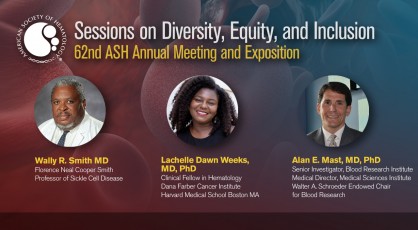
Diversity, equity, and inclusion were major topics at the all-virtual 62nd ASH Annual Meeting and Exposition, with a series of sessions dedicated to exploring race and racial bias in medicine and research. ASH believes this educational content is critically important to share with the wider health care community and has made selected talks publicly accessible through the ASH website at no cost. Learn more and access the sessions.
ASH is committed to the development of resources to help hematologists and other health care professionals improve the quality of care for patients. In 2020, ASH published a number of evidence-based clinical practice guidelines in addition to continuing the development of guidelines to be released in 2021. After publication, the recommendations from ASH Guidelines are disseminated in a number of ways, including smartphone apps, teaching slides, patient resources, videos, and pocket guides.

Abnormal blood clotting has been reported as a complication associated with increased risk of death in patients with COVID-19, particularly hospitalized patients. In response, ASH released new clinical practice guidelines to help prevent serious blood clotting complications affecting these patients. The recommendations suggest that clinicians should use a standard prophylactic anticoagulant dose over higher doses to prevent clotting in patients who have been hospitalized with COVID-19, including those in intensive care.
ASH published new guidelines to help older adults with acute myeloid leukemia (AML) and their health care providers make critical care decisions, including if and how to proceed with cancer treatment and the need for blood transfusions for those in hospice care.
ASH continued its efforts to develop evidence-based guidelines for venous thromboembolism (VTE) with the release of additional guidelines on the treatment of deep vein thrombosis and pulmonary embolism. Adaptations of the ASH VTE guidelines for Latin America is anticipated in 2021.
ASH continued its efforts to develop evidence-based guidelines for sickle cell disease (SCD) with the release of three new guidelines – on the management of acute and chronic pain for patients with SCD, on cerebrovascular disease, and on SCD-related transfusion support.
In 2020, ASH in collaboration with the International Society on Thrombosis and Haemostasis (ISTH), National Hemophilia Foundation (NHF), and World Federation of Hemophilia (WFH), developed clinical practice guidelines on Von Willebrand Disease (VWD), covering both diagnosis and management.
Like much of the world, ASH had to pivot on a great number of things throughout 2020 – not the least of which was reimagining ASH meetings for an entirely virtual environment. ASH is proud to have maintained its rigorous standards for premier science and clinical education, combined with unparalleled collaborative experiences that the hematology community has come to expect from ASH meetings.
Total Meeting Attendees in 2020
Total Meeting Sessions in 2020
Total Meeting Speakers in 2020
For the first time in its 62-year history, the ASH annual meeting – the world’s largest hematology event – went entirely virtual. Attendees raved about the educational and scientific content, delighted in ASH President Dr. Lee’s Fireside Chat with Dr. Anthony Fauci, and discovered unexpected benefits of the technology platform, which helped make up for the disappointment of not being able to connect in person. Between social media and the platform’s virtual collaboration features, attendees were able to enjoy the important collegiality and networking opportunities of previous ASH annual meetings, all while taking in the world-class science presented at the annual meeting.
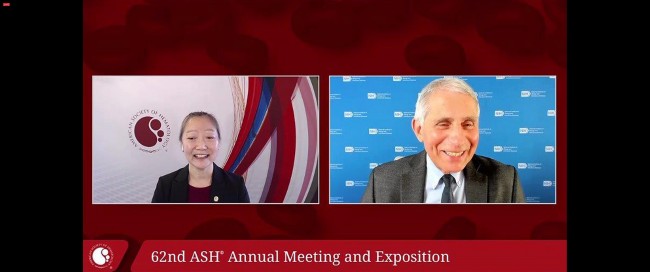



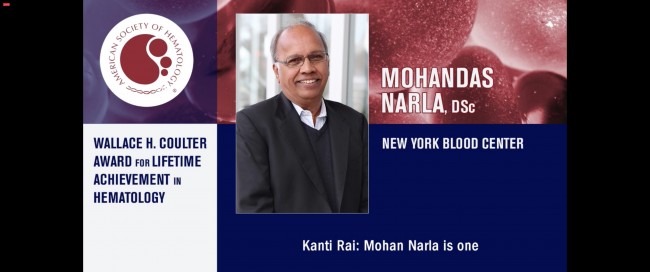
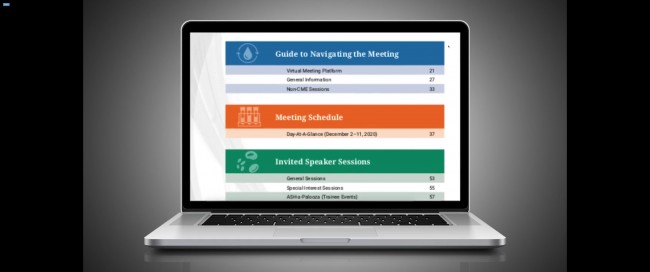
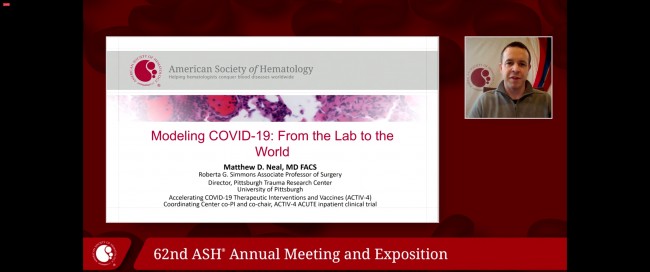
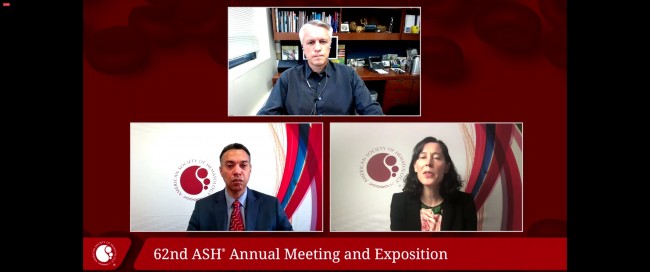

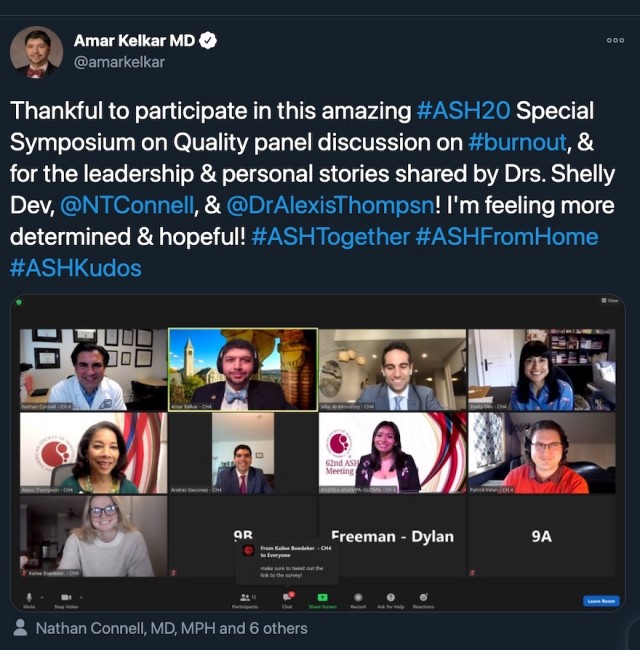

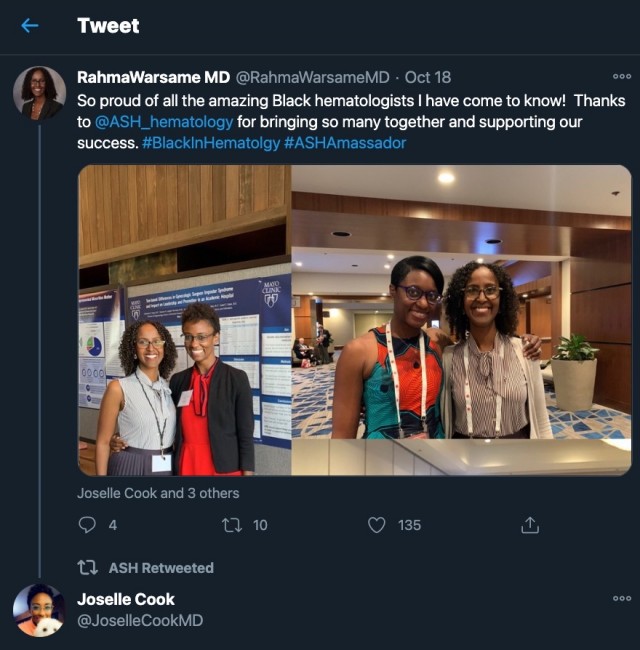

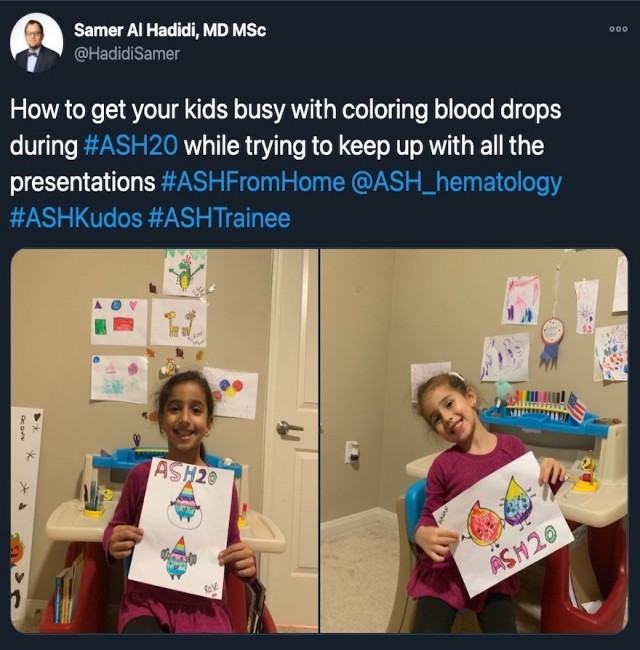
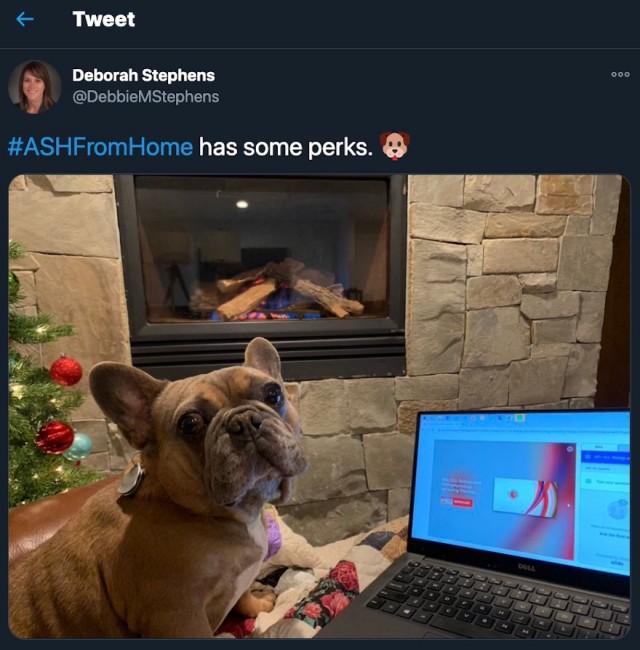
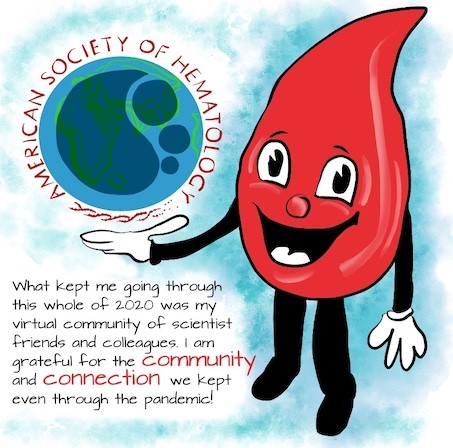
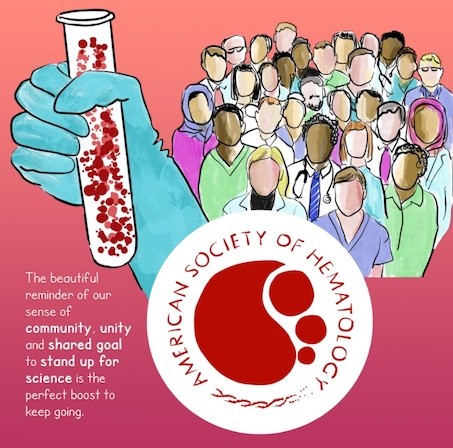
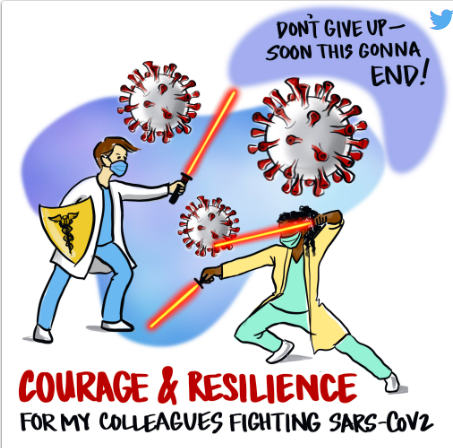
The ASH Meeting on Hematologic Malignancies was also presented as an entirely virtual experience in 2020, providing more than two weeks of comprehensive clinical content, access to top experts in the field, and the opportunity to interact with colleagues around the globe. Attendees heard experts present cutting-edge scientific data, provide out-of-the-box treatment solutions, and answer challenging patient care questions during topic-based panel discussions, including live sessions dedicated to the impact of COVID-19 on the core hematologic malignancies.

ASH strives to maintain a rich and relevant virtual learning resource library, which was useful in 2020 when so many health care professionals and students were at home and eager to develop or maintain their skill sets. More than 60 ASH webinars were released in 2020 on topics related to COVID-19, implicit bias and health equity, and adapting to distance learning in medical education, among others.

ASH introduced its Hematology Review Series to help combat significant challenges faced by hematology trainees during the COVID-19 pandemic. The free series was designed for fellows preparing to take the internal medicine hematology certification examination (offered in fall 2020 and spring 2021) or those desiring a comprehensive update. Two episodes aired every week starting in October 2020 and leading up to the fall Board Exams. These sessions are available at no cost and cover a wide range of topics in benign and malignant hematology.
ASH supports hematologists around the world through its various awards including research grants, training programs, and other opportunities designed to enhance knowledge, research, and expertise. In 2020, ASH affirmed the value of a strong workforce in hematology by enhancing its career development pathway, launching the new ASH Research Restart Award in response to the COVID-19 pandemic, and planning for the launch of a new effort to support the funding of new fellowship tracks in hematology.
Award Recipients Supported in 2020
Provided to Award Recipients in 2020
Countries Represented Among Award Recipients in 2020

While many organizations were forced to cut funding for their awards programs due to the COVID-19 pandemic, ASH was able to maintain its original level of funding support and even add new awards such as the ASH Research Restart Award to help support hematologists. ASH also worked to provide flexibility for time-pressed health care professionals who could not easily apply for awards due to an unusually hectic working environment.
The challenges of 2020 didn’t stop ASH from playing its usual vital role in influencing policies and advocating for hematologists. While visits to Capitol Hill looked a bit different, ASH staff and volunteers still managed to engage in advocacy activities important to researchers and practicing physicians.
Virtual Meetings on Capitol Hill
Grassroots Network Emails to Capitol Hill

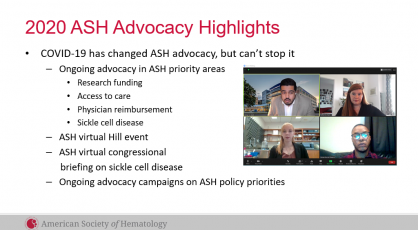
ASH continued its multi-faceted effort to improve outcomes for individuals with sickle cell disease (SCD) in 2020. As a direct result of ASH advocacy efforts, funding was allocated to the Centers for Disease Control and Prevention’s (CDC) Sickle Cell Disease (SCD) Data Collection program– this is the first time this program has ever received congressional appropriations. In October 2020, ASH conducted a Congressional Briefing on the National Academics of Sciences, Engineering, and Medicine (NASEM) Report – Addressing Sickle Cell Disease.
The ASH mission of helping hematologists conquer blood diseases worldwide is truly a global effort. Despite the unique travel challenges of 2020, ASH continued its numerous outreach efforts around the world. ASH global programs continued to provide guidance, leadership, and training on several areas of international focus.
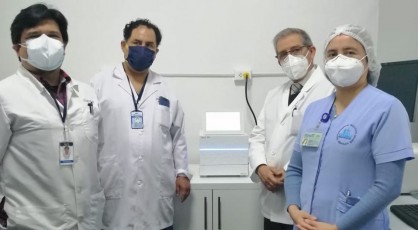
The International Consortium on Acute Leukemia (ICAL) is a clinical network that seeks to improve outcomes for patients with acute leukemia in Latin America by introducing and fostering clinical and laboratory procedures that are considered standard-of-care for treatment. Participating institutions in Latin America faced many challenges as a result of the COVID-19 pandemic, such as resources being redirected to their respective country’s COVID-19 response. The highlight of 2020 was the distribution of the iSeq100 machines, which will allow reference laboratories at participating ICAL sites to develop a next-generation sequencing platform.

In partnership with SickKids Toronto, the Children’s International Consortium on Acute Leukemia (C-ICAL) brought together clinicians and researchers from Barbados, Jamaica, Trinidad and Tobago, and the Bahamas to develop a registry study on the treatment of childhood acute lymphoblastic leukemia (ALL). Similar to the ICAL, the goal of this consortium is to introduce and foster clinical and laboratory procedures that represent the standard of care treatment of ALL in children, while building capacity for conducting clinical trials locally and promoting collaborative laboratory research and drug availability. In 2020, the C-ICAL sites were able to enroll 16 patients in total across five sites in the four participating countries.

The Latin American Registry on Aplastic Anemia (LARAA) aims to create a “proof of concept” registry that will demonstrate collaboration across Latin America, establish common standards, and allow participants to retain ownership of data. A three-year retrospective study will comprise the first phase of the initiative and provide baseline data on the distribution of aplastic anemia and its specific characteristics in the region. In 2020, retrospective data collected from the partner hematology societies in Brazil, Chile, Peru, and Venezuela were uploaded to the ASH Research Collaborative (ASH RC) Data Hub.

ASH partners with several national hematology societies abroad to develop joint symposia at their regional meetings. While ASH speakers normally attend these events in person and present a range of educational and scientific content, in 2020 they participated online as most hematology societies around the world transitioned from in-person meetings to virtual ones. This year, for the first time, ASH speakers also presented at the meetings of the Chinese Society of Hematology and the Philippine Society of Hematology and Blood Transfusion.

ASH continues to implement the Consortium on Newborn Screening in Africa (CONSA), partnering with clinical networks in seven African countries to demonstrate the benefits of newborn screening and early interventions for Sickle Cell Disease (SCD). The COVID-19 pandemic forced many countries to prioritize their laboratory and clinical sites to respond to COVID-19, delayed shipments of medical supplies, and prevented in-person capacity building efforts. Yet, the consortium began newborn screening in Ghana and Nigeria, holding virtual launch events with representation from the Ministry of Health. CONSA will start screening in the additional countries in 2021.
ASH publications played a monumental role in disseminating critical COVID-19 related research and recommendations throughout 2020. As the world leader in hematology publications, ASH continues to uphold the highest standards for its publications which cover the breadth of clinical and scientific research and education in the field of hematology. In response to the pandemic, both journals reviewed and updated their editorial and publication systems to make sure the best science on COVID-19 and hematology was published as quickly as possible.
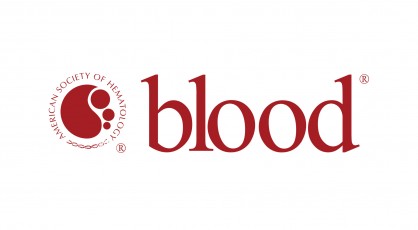
Blood published 849 articles in 2020 – a nearly 8% increase from the previous year – and achieved an Impact Factor of 17.794 – up from 16.601 in 2019. This includes rapidly published Blood articles on COVID-19. Blood also achieved a Google Scholar h5-index of 148 and an Eigenfactor of .20555, along with 165,117 total citations. In 2020, Nancy Berliner, MD, started her tenure as Blood’s newest Editor-in-Chief accompanied by Andrew Roberts, MD, as Deputy Editor. Part of Dr. Berliner’s vision included the launch of a weekly Blood podcast which includes select highlights of each issue.
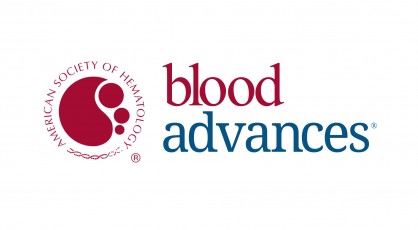
Blood Advances, ASH’s online, open-access journal, continues to grow in prominence. The journal published 688 articles in 2020, up from 450 articles in 2019. This includes rapidly published Blood Advances articles on COVID-19 and a toolkit for the collection of thrombosis-related data elements in COVID-19 clinical studies. In 2020, Blood Advances achieved an Impact Factor of 4.910, a Google Scholar h5-index of 39, and 3,312 total citations. Several new ASH Clinical Practice Guidelines were published in Blood Advances in 2020 on the topics of AML, SCD, VTE, VWD, and COVID-19.
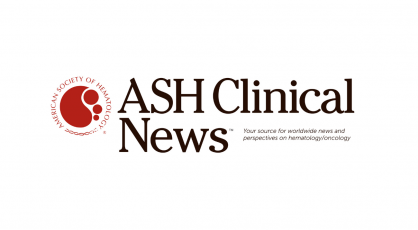
The year 2020 marked the sixth year of publication of ASH Clinical News, and the first under the leadership of editor-in-chief David Steensma, MD. The magazine’s editorial board expanded to include six associate editors, including its first international board member. Also, a new editorial section was launched, “Day in the Life,” providing a glimpse into the daily lives of hematologists working in a variety of settings. The publication received two Communicator Awards of Distinction from the Academy of Interactive and Visual Arts in 2020, and published a collection of features and articles related to the coronavirus pandemic.
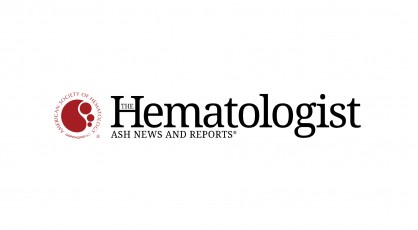
In 2020, with the September/October issue, The Hematologist relaunched online. The new site is indicative of the newsletter’s ongoing efforts to improve searchability and overall reader experience. In 2020, The Hematologist covered important topics at the intersection of hematology and COVID-19 treatment. The publication’s popular podcast series also shifted gears with a new series exploring topics important to hematologists during the pandemic.
The ASH fiscal year 2020 (July 2019-June 2020) was another year of positive financial growth for ASH. This financial stability enables ASH to continue to expand existing efforts, fund new projects, and support its overall mission of promoting research, clinical care, education, training, and advocacy in hematology.
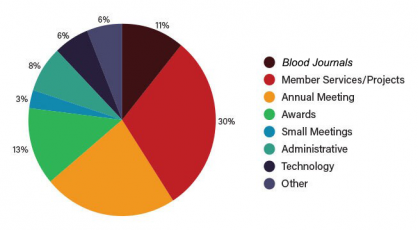
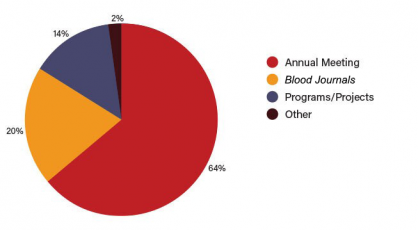
The ASH Foundation was created in 2012 to facilitate private philanthropic relationships with individual donors, other foundations, and government agencies that confer charitable grants. Thanks to generous donors, in 2020 the ASH Foundation provided additional resources to enhance and expand ASH programs dedicated to advancing hematology research, promoting career development and training, and making a global impact.
Disbursements in Fiscal Year 2020
ASH Foundation Donors in FY20
Countries Represented by Donors in FY20
Through charitable support from the ASH Foundation, ASH is able to enhance and expand important hematology programs and pursue new, visionary initiatives. See ASH Foundation gifts in action.
The famed ASH Foundation Run/Walk went virtual this year, with more than 847 registrants participating in the event. Participants ran or walked their own 3K or 5K route between Friday, November 27, and Friday, December 11. Proceeds from the 2020 ASH Foundation Run/Walk supported the ASH Research Restart Award Fund.
